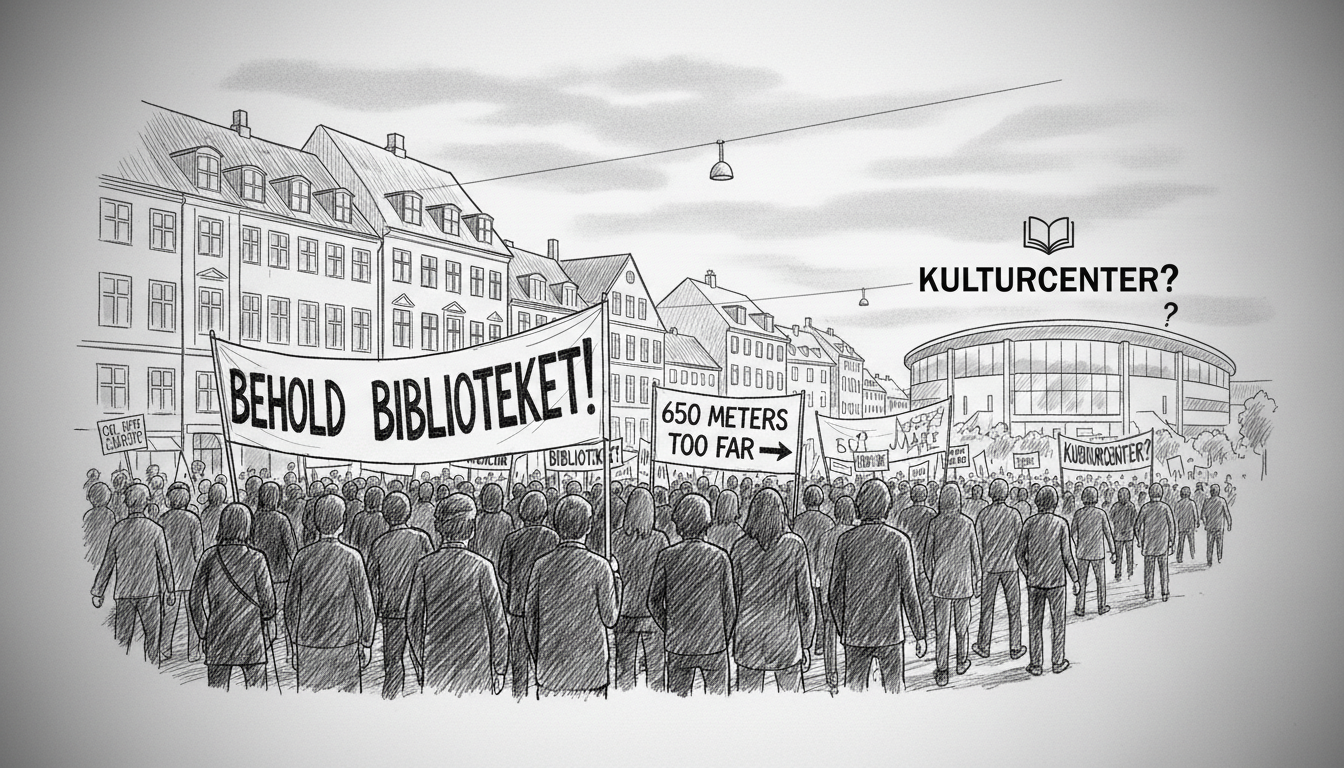A plan to move a local library just 650 meters has triggered substantial protests in Copenhagen's Østerbro district. More than 3,000 residents have signed a petition opposing the relocation of book lending services into Remisen sports hall, which currently hosts badminton and table tennis activities.
Local politicians argue the move would create a new cultural center by combining library services with existing sports facilities. They believe this integration offers better community value. The proposal comes just months after city officials abandoned plans to reduce the number of libraries following public opposition during the summer.
This conflict represents a classic urban planning dilemma facing many Nordic cities. Copenhagen residents demonstrate strong attachment to their neighborhood institutions. The library serves as more than just a book lending facility—it functions as a community hub and social space. The proposed relocation, while seemingly minor in distance, threatens to disrupt established community patterns.
Nordic urban planning typically emphasizes community consultation and consensus-building. The scale of opposition suggests consultation processes may have fallen short in this instance. The situation reveals tension between efficiency-driven consolidation and community preservation values that characterize many Danish urban development debates.
What makes this protest particularly significant is its timing. Coming after recent successful community resistance to library cuts, residents now challenge not reduction but relocation. This indicates communities will defend not just the existence of services but their specific locations and character.
The sports hall conversion raises practical questions about space allocation. Can book collections coexist effectively with sports activities? Will noise and activity levels compromise the quiet environment expected in library spaces? These functional concerns compound emotional attachments to the current library location.
Similar conflicts have emerged across Scandinavian cities as municipalities seek to optimize public facility usage. The trend toward multi-purpose centers often meets resistance from residents who value specialized, dedicated community spaces. This case exemplifies broader Nordic debates about public space management and community identity preservation.
Local politicians face difficult calculations. They must balance budgetary considerations with demonstrable public sentiment. The summer retreat on library reductions suggests political sensitivity to community pressure, which may influence their approach to this current controversy.
The outcome will likely set precedents for future urban planning decisions in Copenhagen and potentially other Danish cities. It tests how far municipalities can push facility consolidation before encountering decisive public resistance.

